第58章
Much is said at the present day on the subject of the "New Woman" (who, as we have seen, is essentially but the old non-parasitic woman of the remote past, preparing to draw on her new twentieth-century garb): and it cannot truly be said that her attitude finds a lack of social attention.On every hand she is examined, praised, blamed, mistaken for her counterfeit, ridiculed, or deified--but nowhere can it be said, that the phenomenon of her existence is overlooked.
But there exists at the present day another body of social phenomena, quite as important, as radical, and if possible more far-reaching in its effects on the present and future, which yet attracts little conscious attention or animadversion, though it makes itself everywhere felt; as the shade of a growing tree may be sat under year after year by persons who never remark its silent growth.
Side by side with the "New Woman," corresponding to her, as the two sides of a coin cast in one mould, though differing from each other in superficial detail, are yet of one metal, one size, and one value; old in the sense in which she is old, being merely the reincarnation under the pressure of new conditions of the ancient forms of his race; new in the sense in which she is new, in that he is an adaptation to material and social conditions which have no exact counterpart in the past; more diverse from his immediate progenitors than even the woman is from hers, side by side with her today in every society and in every class in which she is found, stands--the New Man!
If it be asked, How comes it to pass, if, under the pressure of social conditions, man shows an analogous change of attitude toward life, that the change in woman should attract universal attention, while the corresponding change in the man of her society passes almost unnoticed?--it would seem that the explanation lies in the fact that, owing to woman's less independence of action in the past, any attempt at change or readaptation on her part has had to overcome greater resistance, and it is the noise and friction of resistance, more than the amount of actual change which has taken place, which attracts attention; as when an Alpine stream, after a long winter frost, breaks the ice, and with a crash and roar sweeps away the obstructions which have gathered in its bed, all men's attention is attracted to it, though when later a much larger body of water silently forces its way down, no man observes it.(An interesting practical illustration of this fact is found in the vast attention and uproar created when the first three women in England, some thirty odd years ago, sought to enter the medical profession.At the present day scores of women prepare to enter it yearly without attracting any general attention; not that the change which is going on is not far more in volume and social importance, but that, having overcome the first obstruction, it is now noiseless.)Between the Emilias and Sophy Westerns of a bygone generation and the most typical of modern women, there exists no greater gap (probably not so great a one) as that which exists between the Tom Joneses and Squire Westerns of that day and the most typical of entirely modern men.
The sexual and social ideals which dominated the fox-hunting, hard-drinking, high-playing, recklessly loose-living country squire, clergyman, lawyer, and politician who headed the social organism of the past, are at least as distinct from the ideals which dominate thousands of their male descendants holding corresponding positions in the societies of today, as are the ideals of her great-great-grand mother's remote from those dominating the most modern of New Women.
That which most forces itself upon us as the result of a close personal study of those sections of modern European societies in which change and adaptation to the new conditions of life are now most rapidly progressing, is, not merely that equally large bodies of men and women are being rapidly modified as to their sexual and social ideals and as to their mode of life, but that this change is strictly complementary.
If the ideal of the modern woman becomes increasingly one inconsistent with the passive existence of woman on the remuneration which her sexual attributes may win from man, and marriage becomes for her increasingly a fellowship of comrades, rather than the relationship of the owner and the bought, the keeper and the kept; the ideal of the typically modern man departs quite as strongly from that of his forefathers in the direction of finding in woman active companionship and co-operation rather than passive submission.If the New Woman's conception of parenthood differs from the old in the greater sense of the gravity and obligation resting on those who are responsible for the production of the individual life, making her attitude toward the production of her race widely unlike the reckless, unreasoning, maternal reproduction of the woman of the past, the most typical male tends to feel in at least the same degree the moral and social obligation entailed by awakening lifehood: if the ideal which the New Woman shapes for herself of a male companion excludes the crudely animal hard-drinking, hard-swearing, licentious, even if materially wealthy gallant of the past; the most typically modern male's ideal for himself excludes at least equally this type.The brothel, the race-course, the gaming-table, and habits of physical excess among men are still with us;but the most superficial study of our societies will show that these have fallen into a new place in the scale of social institutions and manners.